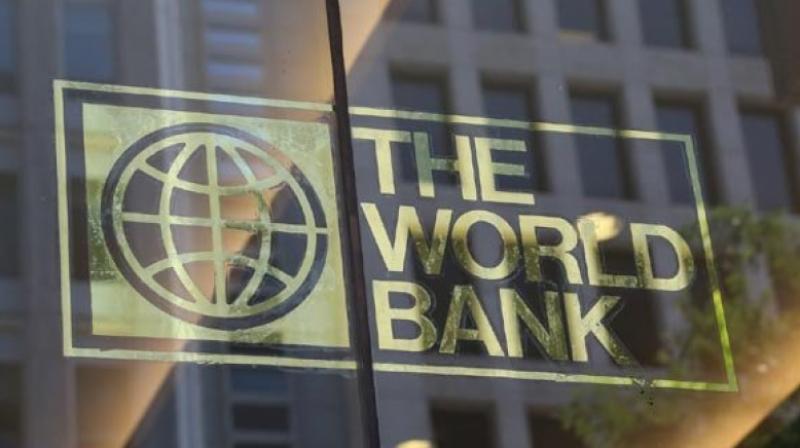World Bank raises objections on LPS

Vijayawada: The World Bank Panel Inspection reports have revealed very interesting facts about the Land Pooling Scheme (LPS).
The World Bank (WB) panel on the one hand lauded the effectiveness in land pooling, but on the other hand it highlighted the lapses and failures in implementation. According the report, several farmers who own land, explained that they have had substantial income from agriculture that covered their living expenses, paid for their children’s education and gave them financial safety and stability.
But, according to them, the annuity and pension amounts paid under the LPS are too small and insufficient to sustain their livelihoods. Even the landless labourers are struggling to meet their day-to-day expenses.
WB Inspection panel chairman Gonzalo Castro de la Mata, panel member Jan Mattsson, executive secretary Dilek Barlas and operations officer Birgit Kuba, visited India from September 12 to 15, 2017.
The panel team held meetings in Delhi, Vijayawada and several villages in Amaravati. The team met with the ‘requesters’ and other potentially affected community members, farmers in support of the LPS and their representatives, representatives of the WB country office, officials from the ministry of finance and the AP Capital Region Development Authority (APCRDA), as well as civil society representatives.
According to the report submitted by the panel, the proposed project is currently under preparation and is at the pre-appraisal stage.
According to World Bank, the appraisal of the proposed project is planned for early November 2017 and will include the strategic environmental and social assessment environmental and social management framework, Resettlement Policy Framework (RPF) and Resettlement Action Plan (RAP) for the initial 10 roads. These 10 roads constitute the first phase of the proposed project and make up roughly 30 per cent of the planned bank financing.
According to the manage-ment, the planned flood protection works and upgrading village infrastructure will follow in later phases of the proposed project and will be appraised separately.
During its visit, the panel also met with community members who claimed that they were misled into participating in the LPS, as they did not have information about it, or they were under pressure to join. One of the alleged reasons for this pressure was the issuance of short deadlines by which individuals were required to decide to join the LPS; otherwise, they were told that their land would be acquired through land acquisition. The panel team was told that these deadlines were later extended several times, but by then many people had already joined the LPS.
They have also mentioned that other farmers explained that they were allotted a specific plot of land, which they could identify on a map, but claimed that the actual plot had not been adequately measured and demarcated on the ground.
Others claimed that the lands they owned before the LPS implementation started were registered as smaller plots when compared with what they had.
The panel team also met with several people who expressed concern about physical cultural resources, particularly losing their burial and cremation grounds as well as temples and churches. The panel further heard allegations of discrimination from vulnerable groups, including individuals claiming to belong to the scheduled castes, scheduled tribes, and other backward classes.
Some farmers also claimed that their agricultural plots were disconnected from electricity even though they had not joined the LPS and their land had not been acquired, and thus they could not irrigate. In one case, a farmer claimed to have been without electricity for over a year.
The panel team also met with landless agricultural wage laborers, among them women who were the heads of their households who had lost or feared they would lose employment opportunities due to the LPS.
According to the project documents, the average monthly family income of landless laborers is '8,476, an estimation based on a survey of 193 individuals.
Documentation that the APCRDA provided to the panel during its visit, as of August 2017, 20,529 landless pensioners lived in the affected villages.
The panel was told by several people in different villages that a couple would earn about Rs 800 per day and would work at least six days per week, resulting in a monthly family income of Rs 19,000 per month. Under the LPS, each family now receives a pension of Rs 2,500 per month, which they claim will not cover their living expenses. They explained to the Panel that since they are no longer able to farm in the Amaravati area, they have to travel far to find agricultural work, and often cannot find jobs. They also emphasized that they had farmed for their entire lives and were not trained to perform other work.
Many individuals claimed that they had farmed highly fertile lands, with ground water available close to the surface, where they could farm year-round and harvest crops three times per year. Some people alleged that their lands were recorded in Project documents as dry lands and thus were less fertile, even though they had irrigated lands, and therefore received less compensation for their agricultural income than their production merited.
Affected families
The average monthly family income of landless laborers is Rs 8,476 as per project document.
20,529 landless pensioners lived in the affected villages as per information provided by APCRDA.
The Panel team also met with landless agricultural wage laborers, among them women who were the heads of their households.

